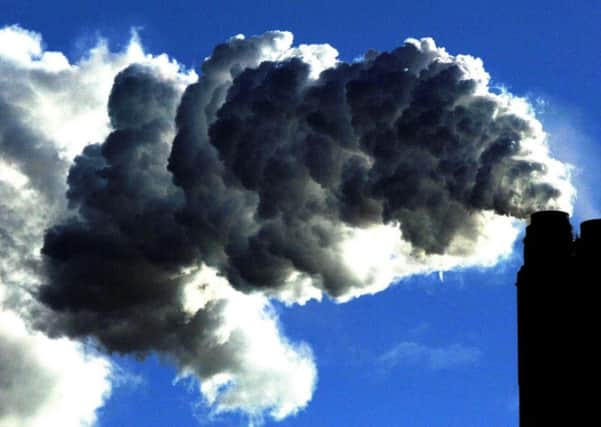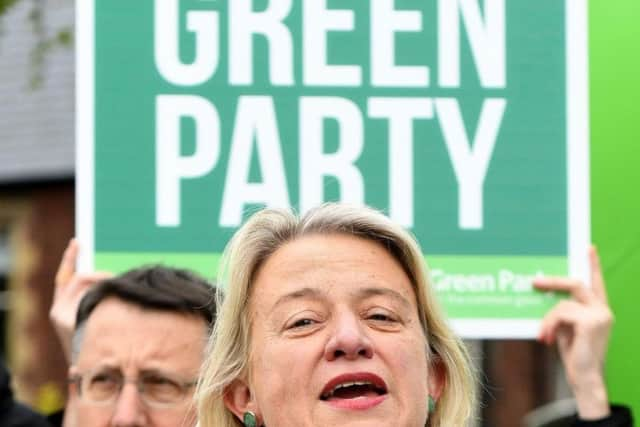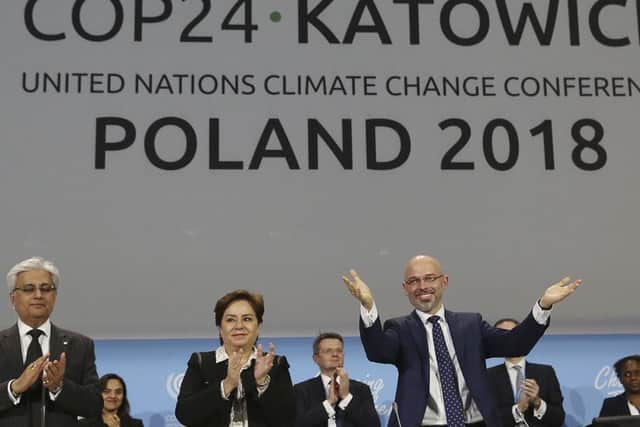Natalie Bennett: New climate of opinion can save planet


That’s ironic, for this COP (Conference of the Parties) has to be the last swansong for promotion of coal as an energy source. It is clear we have to stop all new coal now, and phase out existing plants fast (as Britain has promised to do by 2025).
With Australian cities Sydney and Melbourne signing up to the Powering Past Coal Alliance, in defiance of their national government, it is obvious that its holdout strongholds are losing the battle.
Advertisement
Hide AdAdvertisement
Hide AdThere is a strong push now to stop new gas generation and heating provision as well. With the IPCC’s acute warning that we have 12 years to prevent catastrophic warming beyond 1.5 degrees before us, it is clear that only fossil fools will be putting their money into new plant that will be left stranded as we race to meet the 18 per cent cut per year in emissions we need from next year.


The COP ended with an agreement that was better than expected, although not nearly good enough for the urgency of the climate emergency.
This COP won’t be remembered for the coal, however, but as the meeting in which civil society took its rightful place at the climate talks, stepping up to be the sensible grown-ups while too many governments remain in the pockets of the fossil fuel corporations and the multi-nationals profiting from trashing the planet while the rest of us pay.
One teen – Sweden’s Greta Thunberg – and one nonagenarian, David Attenborough, provided some of the strongest and clearest messages of the talks.
Advertisement
Hide AdAdvertisement
Hide AdThe World Health Organisation was newly prominent at these talks, showing how keeping people healthy through slashing air pollution is a “cobenefit” of climate action, one that people in cities like Katowice are going to profit from most.


We also saw signs, of varying intensity, that companies and industries are starting to understand they can’t continue as they are.
Significant for its emissions potential, but also for the fact that it was prepared to set a goal without being able to chart the path to it, was the declaration by Maersk, the largest global container-shipping firm in the world, that it is going net-zero carbon by 2050.
As it explained, that means, with ships lasting 20 to 25 years, it wants to be buying zero-carbon ships – maybe hydrogen-powered, maybe battery, maybe sail-assisted – by 2030. A real challenge, but also an opportunity for a shipyard prepared to step up.
Advertisement
Hide AdAdvertisement
Hide AdIt was obvious that new ways of doing things are fast developing and proving their multiple benefits, giving the chance of a better society than our fossil-fueled present that has benefited the few at the cost of the many. Yes, obviously renewables for energy – with new facilities fast undercutting even existing coal on cost – but also transformations in land use, one of the rising issues at this COP. The talk is of “nature-based solutions”.
Planting and protecting forests is the obvious part of this, but it goes far beyond that. Zero or minimum-tillage that keeps carbon in soils used for regular cropping, enriching grasslands and protecting or rewetting peatlands covers much more ground.
A German academic pointed out that we grow dryland crops because most of our food sources were developed millennia ago in the relatively dry Middle East. We need to think differently.
The scale of change needed to prevent catastrophic climate change is sometimes breathtaking, and sometimes involves changing the habits of millennia. This – and the other massive challenges of slashing waste, restoring biodiversity and bioabundance, protecting our oceans and rivers – is enormous.
Advertisement
Hide AdAdvertisement
Hide AdBut it struck me in Katowice that it is only 12 years since Twitter and Facebook were born. They’ve changed the way our societies work and our children develop, in massive ways that we are still coming to terms with.
Rapid change is possible – indeed a normal part of the human condition. Political will, industry innovation and democratic participation are all crucial to making that happen, and happen in the right ways, but international diplomacy can still play its part.
Natalie Bennett is the former leader of the Green Party. She lives in Sheffield.